JULIAN RUCK
While I was away I picked up a copy of the Evening Post, a Swansea institution that has gone downhill in recent years. The ‘paper I knew long ago used to bring out its first edition around midday, with further editions up to and including the ‘Final’ or ‘Late Night Final’. You knew which edition it was by the number of windows filled in on the Mumbles lighthouse image at the top right of the front page. One window filled for the first edition . . .
Then of course there was the Sporting Post on Saturday night, with young boys racing from pub to pub to sell their allotted copies. In competition with them were the ladies of the Sally Ann with bundles of War Cry, and occasionally, yours truly with a band of Plaidistas, offloading Welsh Nation. The competition was fierce! (Though unlike the paper-sellers and the bonneted ladies I could – and did – partake of liquid refreshment to keep me going.)
In those days, long before the internet, before pubs had wall to wall television, but after bookies became legal in 1960, the pubs downtown seemed to be filled in the afternoons with men reading newspapers, men of studious mien, a pencil in one hand and often a half-smoked fag behind an ear. The real professionals had a fag behind one ear and a spare pencil behind the other.
I am of course referring now to aficionados of the turf, the sport of kings . . . and of layabouts dreaming of easy money. For members of the latter group to know which nag had won the 2:30 at Doncaster required the ‘Stop Press’ entry on latest edition of the Post, and it was quite common to see breathless groups of men waiting at the Post‘s various delivery points in anticipation of sudden wealth. All gone.
In recent years, printing was moved out of the city, the Evening Post became a morning paper, and what had once been the Welsh daily with the largest circulation lost its crown to the Daily Post. Then, in what might prove to be the coup de grace the Post was taken over by Trinity Mirror, and is now controlled from Cardiff, its online presence merged with Llais y Sais and the Echo in WalesOnline.
If further proof was needed of the Post‘s downward slide it came when I saw that Julian Ruck now has a weekly column. Here’s his effort from the 7th. (Click to enlarge.)
Before considering what he wrote let’s look at how he’s described by the Post: “Julian Ruck is a novelist, broadcaster, political commentator and guest public speaker”.
His ‘novels’ are excruciating pot-boilers that he publishes himself but nobody buys. “Broadcaster”? Mmm, has anyone seen or heard him ‘broadcast’ – or have I been lucky? “Political Commentator”; well, I’m a political commentator, everyone who expresses a political opinion is a political commentator, the term means nothing. “Guest public speaker” is a curious phrase, why not just ‘public speaker’? I suppose it’s trying to say that he gets invited to places. (Twice?)
As for what he has to say, well, here’s a sample, “Dear me, this Welsh bit is getting a bit tedious isn’t it?” The senior language of this island, the language spoken in London when the English were still Germans, is reduced to “this Welsh bit”. What a twat!
Later he describes Welsh as “a foreign tongue”, which is not only offensive but also inaccurate. Because you see, Ruck, it wouldn’t matter if no one spoke Welsh – it would still be the national language of Wales. That’s because it is unique to Wales, it is the ancestral language of the Welsh, and for most of our history it defined Welsh nationality. English may now be the majority language of Wales, but it can never be the national language.

It would be easy to dismiss Ruck as a pompous little prick, a snob, but I feel rather sorry for him. He’s bitter because he’s been denied the success he feels he deserves. His search for a scapegoat has led him to a conspiracy of Welsh speakers who produce dastardly schemes to deny us the wit and wisdom of Julian Ruck. This leads to him hating the Welsh language itself and all those who speak it . . . maybe he thinks all Welsh speakers are in on the conspiracy.
Face it, Ruck, you’re a crap writer and a mercenary bigot, an opinionated nobody. But to give your attacks some credibility you have to be bigged up into a popular writer, someone whose opinion matters.
Though it says a lot about modern Wales that it’s the Labour-supporting, Welsh-hating, Trinity Mirror Group that provides you with a platform for your BritNat bigotry.
P.S. I’m informed that Ruck’s latest column, on the 14th, was used to attack Welsh language education. Why does anyone buy a rag from Trinity Mirror?
♦
THOSE LEAFLETS
Now let’s turn to others who share Ruck’s attitude to the Welsh language, I’m talking now of those connected with Tales With a Twist.
Thanks to the Electoral Commission I now know that distributing election material lacking an imprint is not an offence; the offence lies in publishing and printing election material without an imprint. But of course, without an imprint, it’s very, very difficult to prove who wrote and printed the document being distributed. Something of a Catch-22 situation.
Which is why I asked the Electoral Commission to give me examples of successful prosecutions for not having an imprint. The response was: ” . . . where the material is a newspaper advertisement we can contact the newspaper for the details of the person who placed the advertisement.” Obviously, but with the best will in the world, someone would have to be really, really stupid to put election material that lacked an imprint in a newspaper advertisement. And would a newspaper accept such an advertisement, knowing that it broke the law?
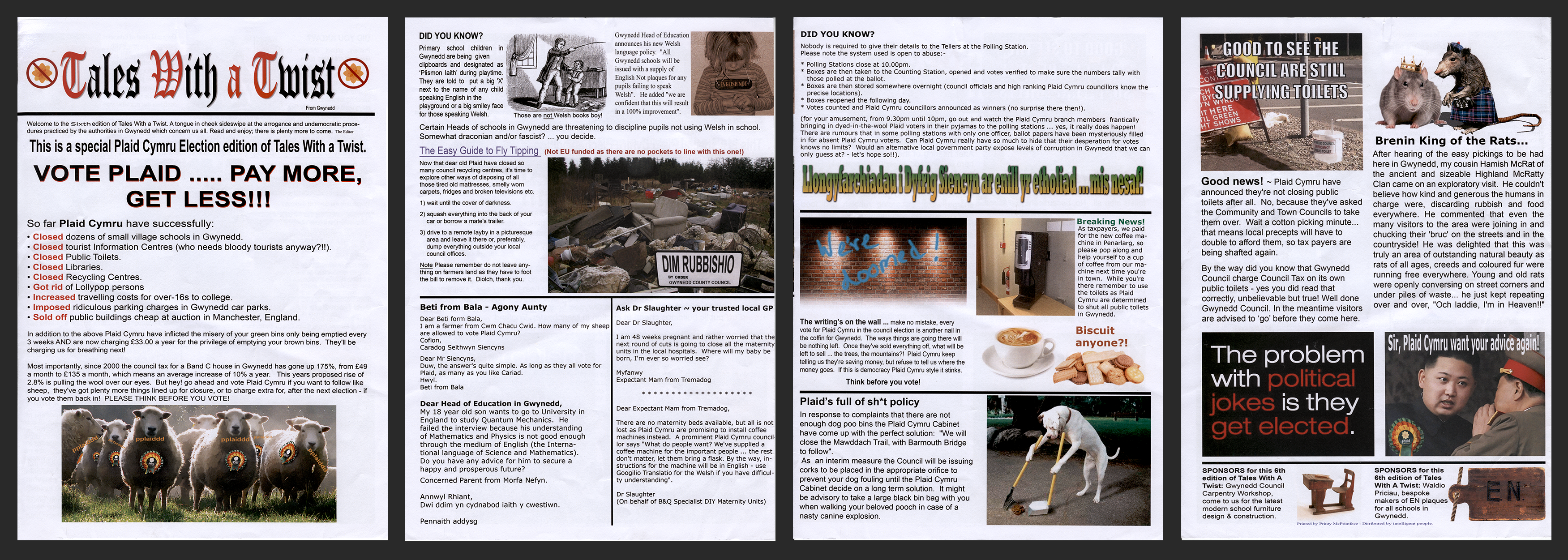
Though one possibility intrigues me. What if I was to write and run off a few hundred copies of a leaflet ahead of the next general election, a leaflet claiming that the local Labour candidate attends the same Penrhyndeudraeth coven as the Conservative candidate, where they romp around bollock naked, beating each other with riding crops – but the leaflets never left my house.
According to the Electoral Commission I would have committed an offence, even though no one would read what I’d written. Which is absurd, because what I’d written and printed could only influence electors if it was distributed, yet distributing unattributed election material is not an offence. Am I alone in thinking that the law has got this the wrong way round?
Anyway, things are moving, slowly. North Wales Police seem to be interested. I now have copies of issues 1 and 2 of Tales With a Twist, proving that we are dealing with a campaign rather than a one-off, and even though Councillor Louise Hughes has denied distributing the leaflets I have statements that a) confirm she was distributing them in Trawsfynydd on April 28, and b) that she gave copies to Steven Churchman, the Lib Dem councillor. Other statements are promised.
As for who printed the leaflets, well we all know who that was. What’s more, when I spoke with the DC in Caernarfon on Thursday afternoon we discussed the printer and yet neither of us needed to mention his name. He is – to quote Donald Rumsfeld – a known known.
I have a feeling this may not be over.
♦
PLAID CYMRU & THE SNP
Many of you reading this may get a warm glow from watching Leanne Wood hugging Nicola Sturgeon, but how realistic is it to compare Plaid Cymru with the Scottish National Party? I got to wondering how their results since the first elections to the devolved bodies in 1999 compared.
In 1999 Plaid did marginally better than the SNP; point three of a percentage point lower in the constituency vote but over three percentage points higher in the regional/list vote. A good showing.
In 2003 both parties lost support. Plaid Cymru’s performance can be largely attributed to the palace coup that removed Dafydd Wigley, Plaid’s most popular ever leader. The fall in support for the SNP is due to a number of factors, certainly a change of leader also played a part, though most would agree that John Swinney was a more inspiring replacement for Alex Salmond than Ieuan Wyn Jones was for Dafydd Wigley.
The picture in Scotland was further complicated by what could be explained, perhaps paradoxically, as a falling off in support for the SNP, but the electorate still returned more MSPs in favour of independence.
For while the SNP lost 8 seats in 2003 the Scottish Greens gained 6 seats and Tommy Sheridan’s Scottish Socialists increased their tally by 5. Which meant that there were 40 MSPs (out of 129) supporting independence after the 2003 election against 37 in 1999.
When we move on to 2007 we see the gulf opening. Plaid Cymru improves marginally on 2003 but nothing like the increase that was expected with an unpopular Labour government in Westminster, whereas the SNP’s support increased by almost 50% to make it the largest party.
The election of 2011 is remarkable in that, in Wales, with the Tories now in power in London, many Welsh voters were persuaded to ‘send a message to Lundun, innit’ by voting Labour. By comparison, in Scotland, a Tory government in London did nothing for Labour as the SNP romped home with a majority of the seats.
Most recently, in 2016, the SNP may have lost six seats (and its majority) but in terms of votes there was a fall of only 2.3% in the regional share but an increase of 1.1% in the constituency vote. Add in the two Scottish Green representatives and there is still a pro-independence majority of 65 MSPs in Holyrood.
Here in Wales, Plaid Cymru may have improved on its dismal performance in 2011 (if it hadn’t, then it might have been time to call it a day), partly due to having a new leader in Leanne Wood, but still got less than half the SNP’s share of the vote, leaving the 1999 result looking like a lost golden age.
In Scotland, the issue for a decade or more, and the issue still dominating political debate, is independence. Here in Wales we have a ‘national’ party that would prefer not to debate independence (or colonisation, or exploitation, or anything that might upset or annoy anyone), a party that is bumping along the bottom and going nowhere.
You know my view, I gave up on Plaid Cymru years ago. With Wales falling apart around us, suffering attacks from all quarters, how much longer can you continue supporting a party going nowhere, a party that will sabotage itself if there’s any possibility of success? (Believe me, it will!)
(You’ll notice that I’ve spared Plaid Cymru’s embarrassment by sticking with the devolved vote, not comparing the relative showings for Westminster elections, in which Plaid does even worse.)
♦
MONKTON
In the interests of clarity this whole section was re-written 17.07.2017
WHAT WE KNOW
There were unpleasant scenes in Monkton, Pembrokeshire, on Tuesday night and Wednesday morning last week when a crowd gathered to protest about a paedophile the crowd believed was living at Gwilliam Court. As is invariably the case in such incidents the crowd included some seeking an excuse for trouble, these being responsible for allegedly setting bins on fire, letting down the tyres on police vehicles and other mischief.
Despite the behaviour of these idiots there was a genuine cause for concern, for the woman allegedly living in Gwilliam Court was identified (though not named) by both the Sun and the Daily Mail as Amber Roderick. Her record would cause any parent to worry about her presence on their estate. And yet there are so many questions about the whole business.
On the assumption that we are dealing with Roderick let’s look at her most recent conviction, at Reading Crown Court in January 2012. As the Crown Prosecution Service summary tells us, she was jailed for a minimum of four years and placed on the Sex Offenders’ Register. This NACRO document tells us that anyone imprisoned for 30 months or more stays on the register “indefinitely”.
THE AFTERMATH
It became clear from police and council statements that if it was Roderick – now going by the name of Bridget McGinley – then she was not the tenant of the property in Monkton, the tenant being a man with whom she was co-habiting.
But then, to confuse matters, in this report from the Pembrokeshire Herald Superintendent Ian John of Dyfed Powys Police, says, “The two residents of that flat, as it stands, neither of those two people, were actually currently on the sex offender’s register. The facts are, they were not on the sex offender’s register. It would be inappropriate for me to go into specific detail, but what I will say, the lady who moved in with the gentleman who is the tenant of the flat, was not required to record her movements, as she would have been if she was on the sex offenders register.”
Superintendent John’s convoluted statement suggests three options. 1/ Somebody made a terrible mistake, stirring up a mob when it was not Amber Roderick/Bridget McGinley in that flat, 2/ If it was her, then she has somehow been taken off the Sex Offenders’ Register, 3/ Superintendent John is mistaken.
Also quoted in the Pembrokeshire Herald report is ‘Annalee’ who seems to suggest that in Wales offenders remain on the Sex Offenders Register for only five years, with the clear implication that in Scotland and England the period is longer. Is this true?
Well, after consulting the NACRO document again I believe that in the case that ‘Annalee’ refers to, the age of the offender, and the sentence handed down, meant that he stayed on the register for only five years. And it would have been the same in England. (I can’t speak for Scotland.)
Something else that struck people about the Herald report was local councillor Pearl Llewellyn saying, “I was told by Pembrokeshire County Council not to get involved or to come to these meetings, but I have, because my daughter lived in Monkton.” But she’s the elected representative of these people! Why would the council – and what does she mean by “the council”? – tell her not to get involved?
CONCLUSIONS
There are obviously questions to answer, not least – who owns the property in question; is it Pembrokeshire County Council or Pembrokeshire Housing Association? Or is it perhaps a third party, a private landlord, or even an offshore entity leasing property to social landlords, such as I exposed in Link Holdings (Gibraltar) Ltd?
Someone with whom I’m in contact is having great difficulty getting an answer to that simple question from Pembrokeshire County Council.
In the original version of this section I quoted the Housing (Wales) Act 2014 70 (1) (j) which says that sex offenders and others coming out of prison get preferential treatment in the allocation of social housing.
I was pulled up and pointed to the preamble reading, “a person who has a local connection with the area of the local housing authority . . . “. This is not worth the paper it’s printed on. After years of studying the operations of social landlords I know that no ‘local connection’ is needed to be housed by social landlords in Wales.
If the Llansiadwel Housing Association is offered two or three times the normal rate to house a paedophile from Newcastle who’s never set foot in Wales they’ll jump at it.
To understand the truth of what I’m saying you only have to consider the case in Monkton. If it was Roderick/McGinley living there, then it’s reasonable to assume that the tenant was the boyfriend identified in Reading Crown Court as Patrick Maughan and sentenced to six years in prison at the same trial. Both could have been recently released, and neither has a local connection to Pembrokeshire.
As I say, there are just so many questions. The best way to clear things up, to placate the residents of Monkton, and to restore faith in the council, is for both the council and the police to come clean and give the full details of this case.
Also, for social housing providers and other agencies to stop dumping undesirables from England in Wales, no matter what financial and other incentives are offered.
♦ end ♦












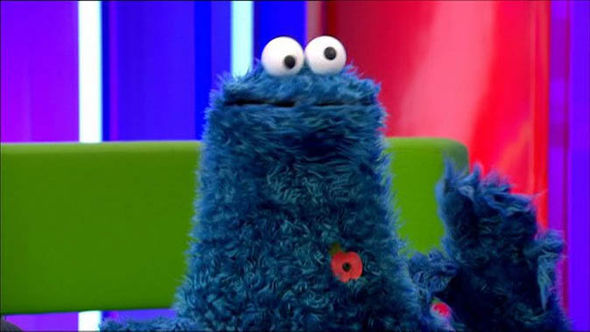




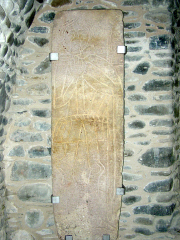
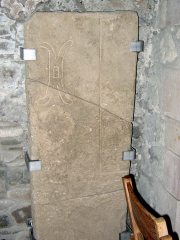

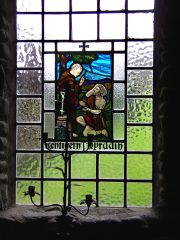
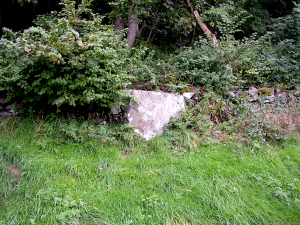
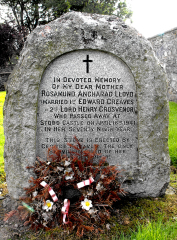
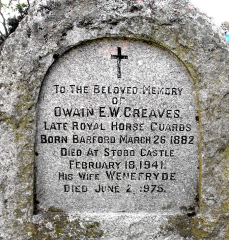


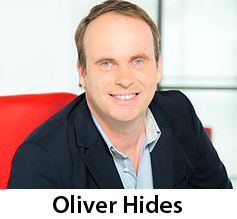 ble here
ble here
